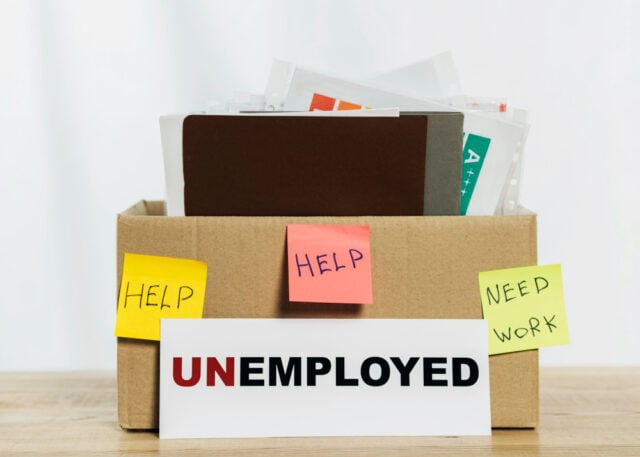
Losing a job is always difficult, but when you have no financial cushion, the situation can feel overwhelming. Bills pile up, uncertainty looms, and the stress of not knowing how to make ends meet can be paralyzing. However, it’s important to remember that you are not alone, and there are steps you can take to regain financial stability. Acting quickly and strategically can help you navigate this tough time and put you back on track. If you’re wondering what to do when you lose your job and have no money, this guide will help you take control of your finances and find a path forward. Losing your job with little or no money in the bank can feel overwhelming, but it’s not the end of the road. The most important thing to do is stay calm, prioritize your immediate needs, and take fast, focused steps to stabilize your finances while actively seeking new income opportunities. This guide walks you through practical actions to take right away, from securing essentials to exploring support options, so you can regain control and move forward with confidence.
Assessing Your Financial Situation
The first step after losing a job is to get a clear picture of where you stand financially. Even if your bank account is running low, understanding your expenses and available resources is crucial. Take stock of how much money you have, whether in savings, pending paychecks, or other assets you can access. List out all your monthly expenses, distinguishing between essentials like rent, utilities, and groceries versus non-essentials like streaming services, dining out, or entertainment.
Creating a survival budget is key. This means cutting out anything that isn’t absolutely necessary and stretching whatever funds you have as far as possible. Even if you’re unsure how you’ll cover the next few months, having a clear plan will help reduce anxiety and allow you to focus on finding solutions. Learning what to do when you lose your job and have no money will require making tough but necessary financial decisions to keep you afloat.
It’s also important to stay informed about debt collection laws in your state. While you cannot be jailed for unpaid debts like credit cards or medical bills, failing to address certain financial obligations, such as unpaid child support, tax debts, or court fines can have serious legal consequences. Taking action early to avoid going to jail for debt means staying in communication with creditors, understanding your rights, and seeking financial assistance or legal advice if needed.
Seeking Financial Assistance
One of the first actions you should take is applying for unemployment benefits. These benefits exist to provide temporary relief to those who have lost their jobs through no fault of their own. Each state has its own eligibility rules, benefit amounts, and duration of assistance. For example, states like Massachusetts and New Jersey offer some of the highest weekly unemployment payments, while states like Florida provide lower payouts, that’s why people here most often turn to short term loans in Florida. Additionally, some states, like New York and California, extend benefits beyond the federal standard during times of economic hardship. If you’re in California or Texas, you may also have access to state-backed loan programs designed to provide low-interest financial assistance to unemployed individuals. To check your eligibility and file a claim, visit your state’s unemployment office.
Beyond unemployment benefits, there are other assistance programs that can help. The Supplemental Nutrition Assistance Program (SNAP) provides food assistance, but benefit amounts vary by state based on income limits and household size. For instance, Hawaii has higher maximum SNAP benefits due to Hawaii’s higher cost of living, while states like Texas and Tennessee have stricter eligibility criteria. Medicaid is another essential resource for healthcare coverage, and while some states, expanded Medicaid to cover more low-income adults, others have stricter eligibility requirements.
Many states also have emergency relief programs beyond federal assistance. If you’re struggling with housing or utilities, check with your state’s housing authority or local non-profits for programs designed to prevent eviction or service disconnections.
If you need immediate local assistance, calling 211 connects you with food banks, shelters, and emergency financial aid programs in your area. Whether it’s help with food, rent, medical care, or transportation, many state-specific resources exist to support those who are unemployed. Exploring these options is essential when figuring out what to do when you lose your job and have no money, as every bit of support can help you stay afloat while searching for new opportunities.
Cutting Costs Immediately
When every dollar counts, making significant lifestyle changes quickly is necessary. Cancel unnecessary subscriptions, cut back on takeout or expensive groceries, and look for ways to reduce utility bills by using less electricity or negotiating lower rates. Many service providers, including internet, phone, and credit card companies, offer hardship programs that allow you to defer or reduce payments temporarily.
Landlords and utility companies may also be willing to work with you if you explain your situation. It’s always better to communicate with creditors before missing a payment rather than dealing with late fees and potential disconnections. If you have student loans, check if you qualify for deferment or an income-driven repayment plan, which could lower or temporarily pause your payments. These small financial changes are essential parts of what to do when you lose your job and have no money and need to survive on a limited budget.
Finding Immediate Sources of Income
Even if you are looking for a full-time job, earning some quick cash can help relieve immediate financial pressure. Consider side gigs like driving for ride-sharing services, delivering food, freelancing online, or offering services like babysitting, dog walking, or tutoring. Websites like Upwork, Fiverr, and TaskRabbit can provide opportunities to make money quickly.
If you have items around your home that you no longer need, selling them can also bring in some quick cash. Platforms like Facebook Marketplace, eBay, or local buy-and-sell groups can help you turn unused belongings into much-needed funds.
Another overlooked option is temporary or part-time jobs. Retailers, warehouses, and restaurants often have immediate openings, even if they are not in your field of expertise. These jobs can provide a steady income while you continue your job search. When you’re figuring out what to do when you lose your job and have no money, focusing on short-term income opportunities can help you cover your expenses while working toward long-term stability.
Jumpstarting Your Job Search
After stabilizing your finances, the next crucial step is finding new employment. Start by updating your resume and LinkedIn profile to reflect your most recent experiences and skills. Reach out to former colleagues, friends, and professional connections, because many job opportunities are filled through networking rather than online applications alone.
Job boards like Indeed, LinkedIn Jobs, and Glassdoor can help you discover new opportunities, but don’t overlook staffing agencies that specialize in placing workers in temporary or contract roles. Some government programs, such as the Workforce Innovation and Opportunity Act (WIOA), provide free job training and employment assistance to help workers transition into new industries. More details on job training programs can be found at CareerOneStop.
If you’ve been considering a career change, this might be the right time to explore new industries. Many online platforms, such as Coursera, Udemy, and Google Career Certificates, offer free or affordable courses to help you gain new skills that can make you more competitive in today’s job market. Making career changes is a key component of what to do when you lose your job and have no money, ensuring you find more sustainable and long-term employment.
Losing a job with no money in the bank is one of the most stressful experiences a person can face, but it is a temporary setback. By taking immediate action like cutting costs, seeking assistance, finding quick income opportunities, and staying proactive in your job search, you can work toward financial recovery. The road ahead may not be easy, but persistence and resilience will help you navigate this challenge and come out stronger on the other side.
If you or someone you know is struggling with unemployment and financial hardship, don’t hesitate to reach out for support. There are resources available to help you get through this tough time, and better days are ahead. When facing uncertainty, knowing what to do when you lose your job and have no money can make all the difference in getting back on your feet.
Disclaimer
The information contained in South Florida Reporter is for general information purposes only.
The South Florida Reporter assumes no responsibility for errors or omissions in the contents of the Service.
In no event shall the South Florida Reporter be liable for any special, direct, indirect, consequential, or incidental damages or any damages whatsoever, whether in an action of contract, negligence or other tort, arising out of or in connection with the use of the Service or the contents of the Service.
The Company reserves the right to make additions, deletions, or modifications to the contents of the Service at any time without prior notice.
The Company does not warrant that the Service is free of viruses or other harmful components












